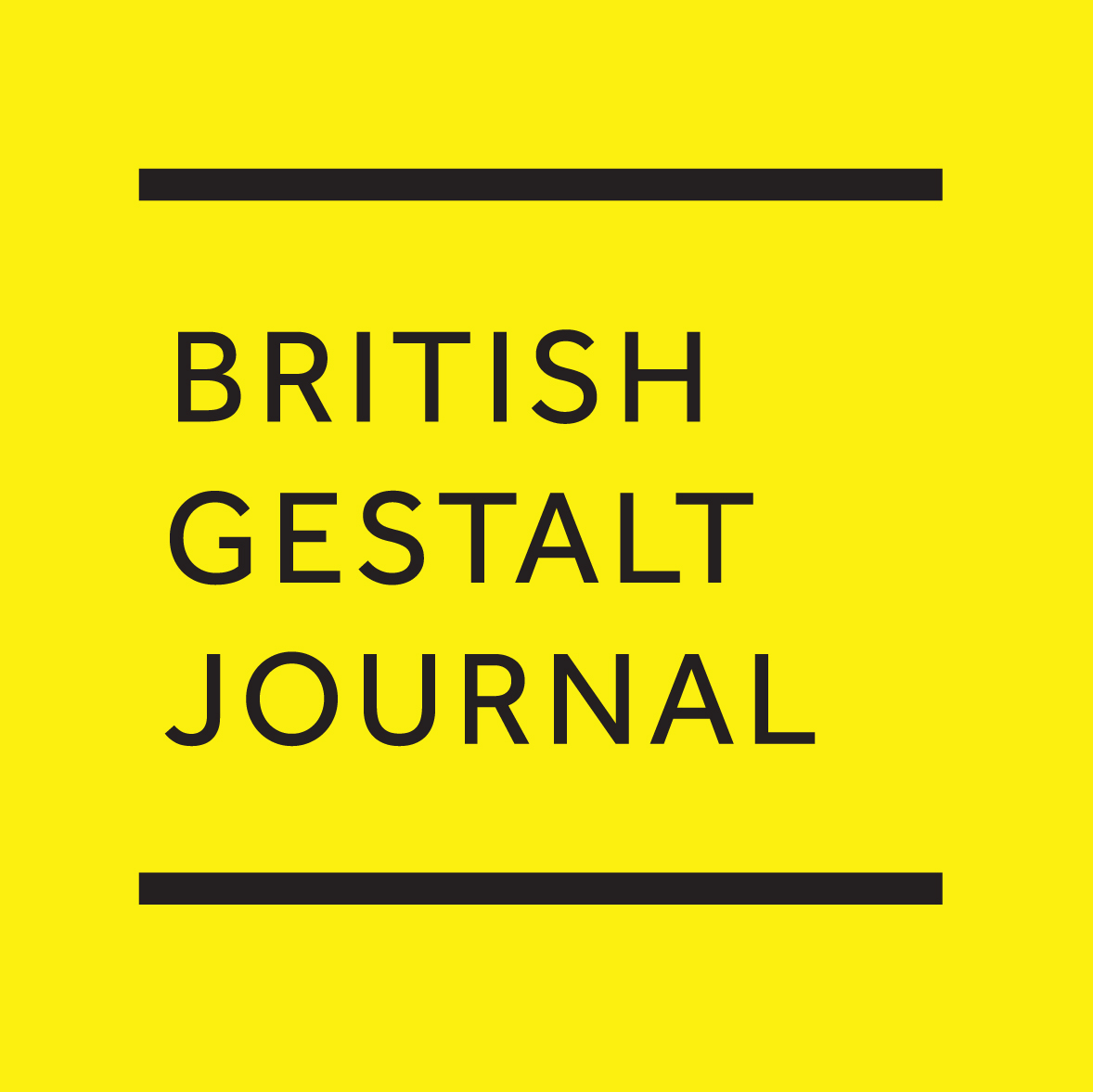Volume 26, 1 (2017)
Volume 26, 1 (2017)
CONTENTS
Editorial - Christine Stevens
Contributions to the UKAGP conference celebrating 25 years of the BGJ
Three levels of training - Peter Philippson
Hopes, fears, and enduring relational themes - Lynne Jacobs
A Gestalt approach to social change - Joseph Melnick
From loses of ego functions to the dance steps between psychotherapist and client. Phenomenology and aesthetics of contact in the psychotherapeutic field - Margherita Spagnuolo Lobb
Response-ability - Gaie Houston
Articles
'Are we becoming bullies?' A case study of stress, communication, and Gestalt interventions among humanitarian workers
Gestalt as a relational approach to Organisational Development - Marie-Anne Chidiac
The child and the parents in psychotherapy: expanding the Gestalt therapy view - Sheila Maria Da Rocha Antony
Book review
19 voices on the self. A review of Self. A Polyphony of Contemporary Gestalt Therapists edited by Jean-Marie Robine - Frans Meulmeester
Notices
Three levels of training - Peter Philippson
Abstract: I distinguish three stages that, in my experience as a trainer and supervisor, trainees and beginning Gestalt psychotherapists go through on their way to understanding the Gestalt approach: reflecting the client, paying attention to their own experience, and speaking to the relationship. I discuss these levels in relation to Gestalt theory and Daniel Stern's writing.
Key words: training, Gestalt, supervision, Stern, relational, intersubjectivity, self, egotism
Hopes, fears, and enduring relational themes
Abstract: Gestalt therapists have struggles to import insights from psychoanalytic understandings of transference into the practice of Gestalt therapy. However, we have also realised the limits and historical baggage associated with the concept. I recommend a practice and a supporting set of ideas around a concept of 'enduring relational themes' (ERTs) as an adequate and epistemologically congruent replacement for transference, I will elaborate on the concept and clinical utility of working with ERTs. The ERTs are evident and best worked with, as they show up in the therapy process, primarily in the hopes and fears clients experience regarding the therapeutic relationship.
Key words: enduring relational themes (ERTs), transference, Gestalt, therapeutic
A Gestalt approach to social change - Joseph Melnick
Abstract: Our world is filled with complexity and conflict. I believe the creation and implementation of a healthy process is essential for cultures and societies to become more inclusive, collaborative, respectful and ideally more peaceful. In this way, positive social change can occur.
In this paper, I begin by first defining social change and then describing some important factors that inhibit it. These often include powerful tribal dynamics that can result in narrow, irrational, simplistic and deeply entrenched identities. I content that the Gestalt approach, originally designed to work therapeutically with individuals, has much relevance in addressing social change situations. I trace how the expansion of the Gestalt approach to couples, families, groups, teams and organisations provided the theoretical base for the development of the contemporary Gestalt social change consultant. During the evolution, managing our passion and advocacy for causes has been of prime importance so that we can become advocates for a healthy process. I then describe a set of theoretical concepts and values that inform our work and are essential for dealing with conflict in the field of social change. I end with a case study.
Key words: social change, resistance, conflict, advocacy, empathy.
From the losses of ego functions to the dance steps between psychotherapist and client. Phenomenology and aesthetics of contact in the psychotherapeutic field - Margherita Spagnuolo Lobb
Abstract: This paper tries to describe the actual contact-making between client and therapist as a co-created dance. It basically makes a proposal to get rid of the individualistic language that is still in Gestalt therapy's categories called 'losses of ego functions', by using the idea of dance, which includes the feelings and the movements of both therapist and client. This perspective is in line with contemporary studies of neurosciences, intersubjective and relational psychoanalysis; it also allows the therapist to stay with the spontaneity of the co-creation of the therapeutic contact (the dance steps), and at the same time to include developmental and psychopathological aspects of the experience (the polyphonic development of domains), as part of the experience of the ground, as a music of 'steps' that the client takes in the therapeutic situation.
Key words: dance steps, aesthetic relational knowledge, field, contact boundary, losses of ego functions, polyphonic development of domains
Response-ability - Gaie Houston
Editor's note: Gaie was one of several UK contributors invited to respond briefly to the question: what is important to contemporary Gestalt therapy? This contribution forms part of the discussion taking place at the UKAGP conference celebrating twenty-five years of the BGJ.
Abstract: This article invites discussion that will enlarge participants' response-ability, through the exchange of both their difficulties and creativity. New social media need considered responses. So also do the many threatening political, geophysical, and cultural events that are background to, or emerge as, the troubles that clients bring to therapy.
Key words: responsibility, response-ability, power, powerlessness, politics, abuse, social media, primary response, out of touch

